Coding With AI: Easier Than Ever—or a Threat to Developer Jobs?
Explore whether AI makes coding easier or threatens developer jobs—and discover how engineers can adapt and thrive in the AI era.
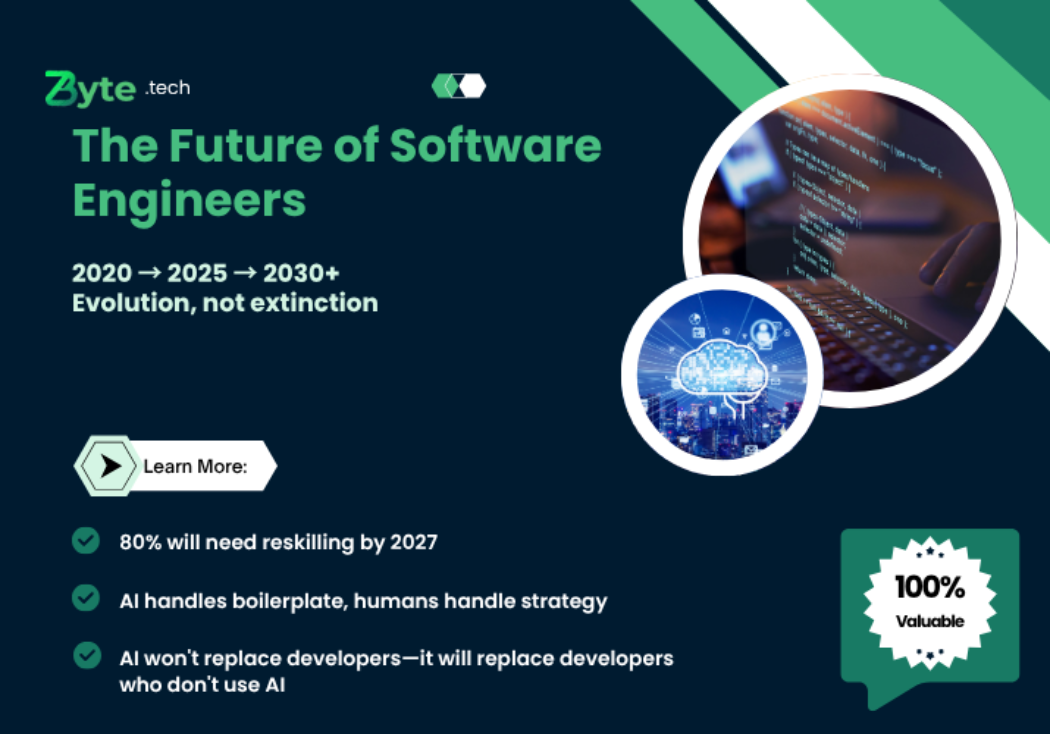
Software engineering truly stands at a critical crossroads. According to my research, tools like GitHub Copilot, ChatGPT, Claude, and Bolt (it's amazing, by the way)have replaced routine boilerplate coding tasks. They are creating a tangible sense of unease across the software engineering field. Yet I’ve seen this before: in the 1990s, code generators sparked similar anxiety. Engineers were concerned about overseas outsourcing and the rise of high-level frameworks like Rails and Django. So, what we're experiencing now feels eerily familiar.
I’ve even experimented with early “vibe coding” tools. Where natural‑language instructions generate working code, and it has prompted me to wonder alongside many others: will programmers become obsolete by 2025–2030?
Problem
The data reinforce my concerns. Since early 2020, U.S. software developer listings have been down roughly 35% since the pandemic, according to Indeed. While BLS-defined “programmer” roles are tied to routine, spec-driven coding has dropped by around 27%. Reflecting on my research time to study junior developers, I’ve noticed the early career roles.
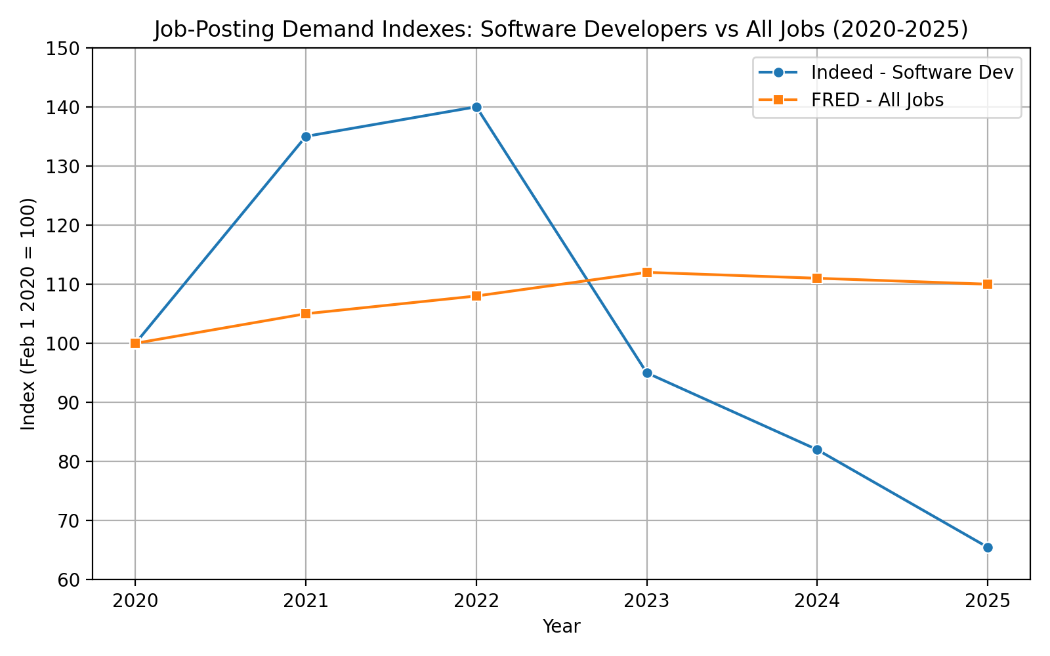
Especially those reliant on repetitive coding are most at risk. I share their concern that entry‑level positions could disappear, akin to how phone operator and print‑technician roles have faded away.
Evidence
According to SignalFire, hiring at Big Tech firms has reduced by up to 50% of entry-level technology positions since 2020, such as QA and low-level scripting, which can disappear in the next five years.
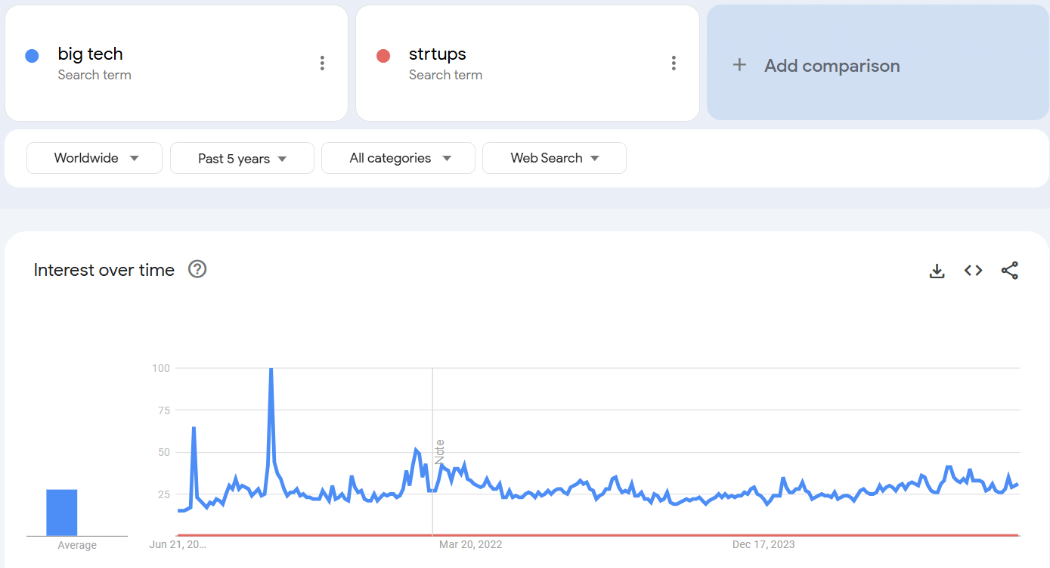
Agitation
Consider taking on your first developer position and finding out that you have to manage code produced by AI, rather than write it yourself. This is not an exception: I have seen AI generate code, which appears to be perfect, but can fail silently or lack context. Due to that, engineers are required to detect minor logic errors and security issues. In brief, they must turn into AI code cops.
As the Reddit director put it, “When you are in the bottom 20% of performers, and you copy AI code with no value added, then of course you will be replaced by AI. It is problem solving and not code writing that is the true value of SWE.”
A sad irony is here. In case AI increases productivity, it can also reduce the demand for developers. The CEO of Cognizant, Ravi Kumar, said that the bottom-half developers received a 37% productivity increase with AI, versus 17% among the top performers. As a result, Salesforce declared that it was freezing the hiring of engineers in 2025, due to a 30 % increase in engineering velocity as a result of its Agentforce platform.
The psychological cost is actual. I have seen junior devs go through hell, not because they are not talented. Rather, their coding skills are now dogged by prompt-writing and AI supervision.
One of the Redditors said, ”When AI makes us so productive, where is my four-day work week...it sits right beside an updated work contract clause that mandates a 20% pay cut.”
Solution
I am a seasoned researcher. Therefore, I do not see AI as a substitute but as a cooperative colleague. One that automates routine work and allows us to work on more profound issues. As an example, the PrincetonChicago study concluded that LLMs are only able to solve 1.7%-4.8% of real GitHub issues, demonstrating the failure of AI in complex design tasks. This proves me right: AI can improve our working process-it cannot substitute our thinking.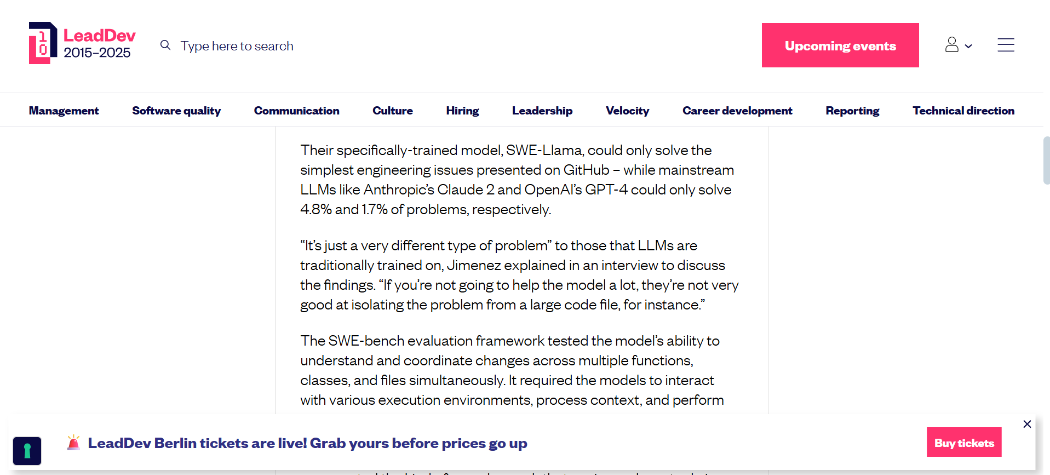
My personal experience shows that the attitude to AI is highly different. According to a recent WIRED survey, some engineers incorporate AI tools in their work every day, and some avoid them altogether. Nearly no one, however, anticipates full automation. Boilerplate is left to AI, but creativity and architecture are still human.
I also agree with a statement made by Microsoft, Aparna Chennapragada stated, "Betting against computer science is like betting against reading in the 14th century." This saying is accurate: computational thinking will remain a useful skill because AI is redefining our functions. Built In echoes the same sentiments, real engineers grow empathy, market knowledge, and critical thinking, specifically in the area of systems architecture and product-market fit.
In order to remain relevant, I would suggest constant learning: 80% of software engineers will have to reskill by 2027, according to the Times of India.
Reskilling comprises:
AI/ML literacy: timely investigation and the identification of the LLM vulnerabilities.
Architecture and system analysis: guardrail and design supervision.
Security: Using artificial intelligence to write the code and vulnerability auditing.
Ethics & AI governance: fairness, accountability and human control.
Finally, I have seen the emergence of AI-native software composer jobs at companies such as Netlify and Replit, where the job descriptions combine prompt engineering, DevOps, security, and CI/CD to build internal platforms. The trend is an indication of the future in which engineers will design infrastructure and systems, not just code.
Case Study: ML Team Doubling Productivity
A director of Reddit (20+ years of experience) wrote about a machine-learning team that doubled its production, not by eliminating employees, but by changing their jobs. As model-building was taken over by AI, engineers switched to pipeline and systems work, becoming more effective. The layoffs did not occur; jobs changed.

Organizational transformation results from Reddit ML team case study -
productivity doubled through cross-functional restructuring over 6-month period
This accords with Cognizant: AI improved the productivity of lower-performers by 37%(Cognizant’s productivity report), and top developers by 17%, a general increase of capacity across the board.
When Might AI Replace Engineers? Realistic Timeline
Today-2027: AI is used in support of coders, but is poor at context, design and systems.
2030+: More competent agents ("AGI-lite") might be able to prototype the whole systems, however, with professional supervision only. Reddit is worried that Artificial General Intelligence (AGI)-like agents may one day be able to handle end-to-end engineering, but this is a distant possibility.
With all the hype surrounding AI taking away jobs, industry voices have warned against being reckless. Dario Amodei of Anthropic cautions that within five years, as much as half of entry-level jobs can disappear; however, senior positions, relying on judgment, strategy and architecture, will remain.
Reddit Verdicts: Strength Lies Beyond Code
The Reddit community also reflects the same idea that AI renders obsolete the so-called copy-paste, low-skill jobs, yet it improves problem-solving engineers.
It was well said by one of the users, “The programmers who just copy-paste Stack Overflow will be replaced with AI… With the assistance of AI, one can… create boilerplate… It is not the connection to the service that is interesting, but something with the data.”
One of them was a hype disproved, “Software engineers will have to be taught how to use AI… However, the notion that AI will take the place of humans performing the coding is so comic bookish ridiculous…”
End note: The Future is not Hollow, but Hybrid
The story of AI taking over the jobs of software engineers is an incorrect interpretation of the past and a misunderstanding of the present. Yes, there will be some jobs that will be eliminated; junior engineers, low-context coders, and boilerplate specialists might be phased out. However, there is more software needed with each productivity improvement (non-coding tech adoption), there is more complexity in the systems, and more product opportunities.
We are not in a time of redundancy; we are in a golden age. The need to hire engineers is high, and it has shifted to systems architecture, AI orchestration, security, and ethics.
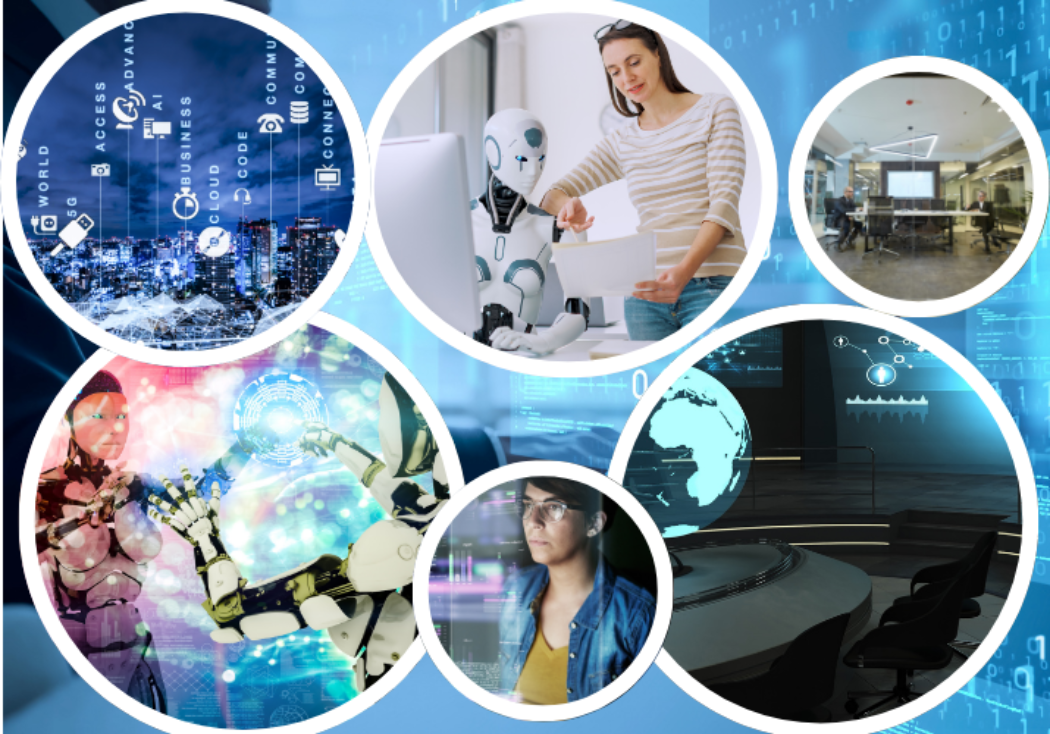
The roles get more strategic and richer, prompt engineering, LLM evaluation, and oversight.
The increase in productivity can cause a slight decrease in the number of employees, but also increase the scope of software and new applications.
The same is reflected in the words of the 30-year veteran at the start of this post: engineering is not becoming obsolete, but more efficient with the help of AI. The days of the software engineer as a dreambuilder are only now starting. AI will enable superior engineers and not get rid of them.
30 Years in Tech By Patrick McKenzie’s

It is based on the works by Patrick McKenzie, who, after many decades of experience, can state that although the technology is changing, the ingenuity of man and his ability to think strategically are the core of software development. To be brief: AI will not substitute the engineers; it will substitute the engineers who do not utilise AI.
FAQ’s
Will AI Replace Software Engineers in 2025?
By 2025, AI will be used by the majority of developers as a support tool, but the core responsibilities of engineers — architecture, collaboration, debugging, and business understanding — remain human-driven.
Will AI Replace Software Engineers in 2030?
2030 is harder to predict. But even by then, it's unlikely AI will possess the cognitive depth and context-awareness required for full software system ownership. What’s more likely is that teams will be smaller and faster, powered by AI copilots.
Will AI Replace Software Engineers? Reddit and Quora Trends.
On Reddit and Quora, this is one of the hottest debates.
Many professionals agree that AI will replace tasks, not roles.
One Redditor summarised it well: “AI is a tool, not a replacement. Knowing how to work with it will separate the pros from the obsolete.”
Others:
Will AI replace software engineers?
Not anytime soon.
Will AI replace software engineers in the future?
Only if software engineers stop learning.
What jobs will be obsolete in 5 years?
Entry-level white-collar roles (e.g., routine coding, basic customer support, and administrative) may fade or shrink markedly.
What tech jobs are AI-proof?
- AI/ML engineers & software developers
- Cybersecurity experts
- Complex systems architects & hardware specialists
These roles require advanced problem-solving, creativity, and oversight—hard for AI to fully replicate.
What jobs will survive AI, according to Bill Gates?
- Coders / AI Engineers — Critical thinking & debugging required.
- Energy Professionals — Strategic decision-making in complex systems.
- Biologists / Scientists — Creative hypothesis & scientific insight.